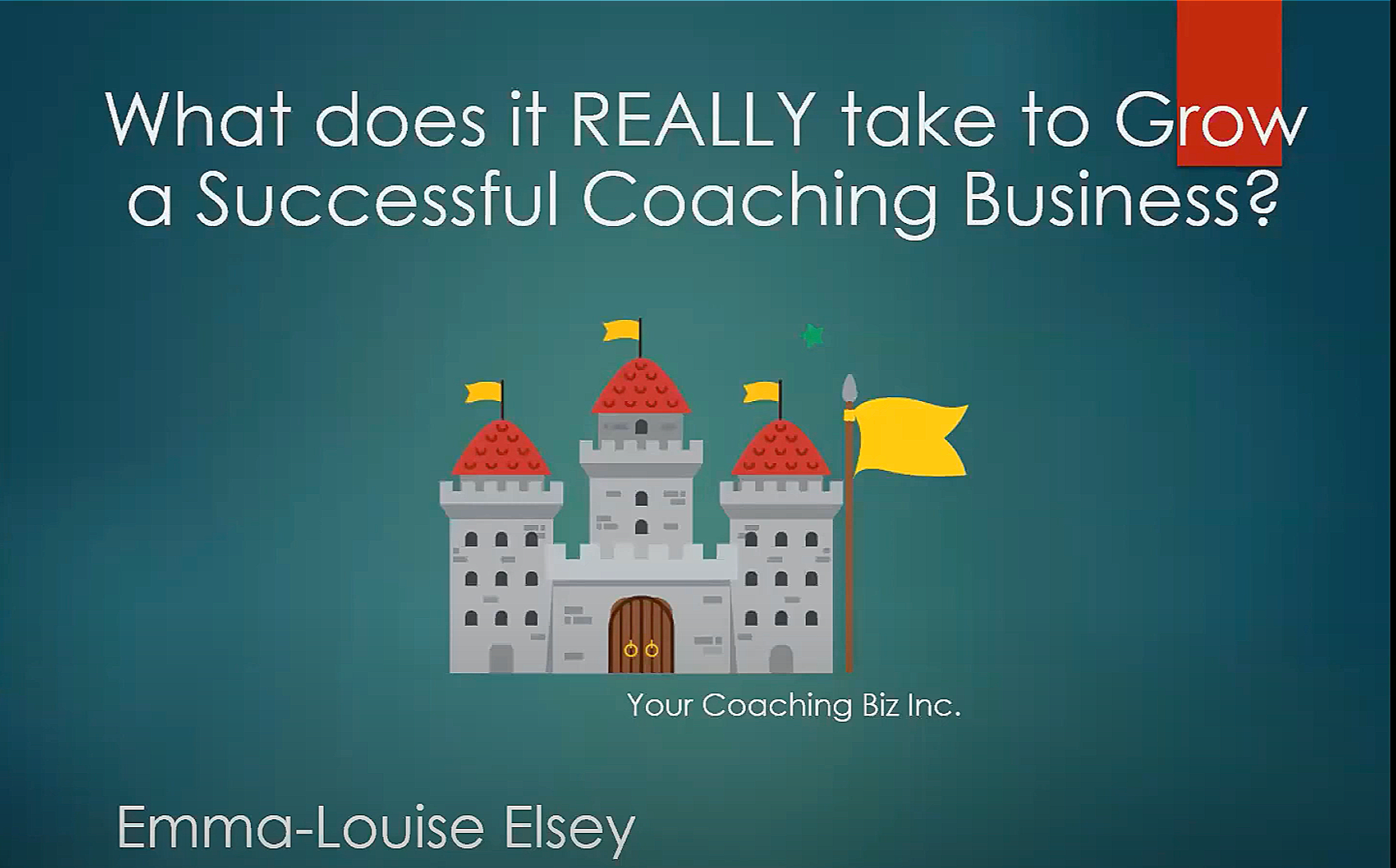Click here to subscribe to my free fortnightly Life Coaching Accelerators, for insider coaching tips.
- Life Coaching
- Business Building
Starting A Life Coaching Business Successfully
Page Summary

This page will guide you in the right direction to embark of this exciting but challenging journey of starting a life coaching business.
The links will give you some essential information on fees, the systems and the legal protections you should put in place, marketing options as well as creating an efficient and comfortable work space. Use the links below.
Quick Links
FYI: I may receive commissions at no cost to you. I participate in the Amazon Services LLC Associates Program. More...
About Choosing Your Niche
Much of the information you will read about starting a life coaching business starts will advising you to choose a niche - often a very specific with a narrow demographic. In fact many coach training schools encourage this as the first step, even before you learn how to coach, questions to ask a client🌝 or structure a program.
For some this is easy, they know who they want to coach, but for others it an be a real struggle to come up with a niche so early. My take on this is that when you start out as a life coach you may be best to either choose a broad niche (such as career, business, confidence, health etc) and a general client demographic.
You may even opt to have no specific niche at all and just market yourself as a life coach who can take your clients from where they are to where they want to be.
This means you will be open to far more opportunities to coach and gain and get experience and can let your preferred client base emerge naturally.
I've written lots more about niches and choosing one
Basic Systems For Setting Up a Life Coaching Business
Your business setup
One of the first things you have to decide on is whether you are going to set yourself up as a sole trader or a limited liability company or whatever structures are available in your country or state. An accountant may be the best person to advise you what would work best for your particular circumstances.
As with any business your coaching practice needs systems to keep track of prospective clients, client sessions, coaching session times, payments, expenses and so on.
Until you reach a point where you really feel overwhelmed with keeping track of clients, bookings, payments etc, or if you are on a tight budget, keeping records and payments on simple spread sheets, an online calendar and in folders (physical or online) may be sufficient.
Coaching software packages
There are several software program systems specifically written for coaches which include a booking system for appointments and have functions that enable you to invoice, take payments and keep notes about client sessions and keep track of progress.
These heavily promoted software packages can be pricey and their format may not suit the particular records you want to keep. So get clear on what you actually need. Many offer a free trial period so you can try before you buy and take a deep breath before you decide it is a good investment.
Deciding On Your Life Coaching Fees
Maybe you are confident about what you can charge. Maybe not! There are more words written about setting fees than almost any other aspect of starting a coaching business - apart from how to get clients.
It is important to get it right if you are going to attract your ideal coaching client. Do your market research but don't fall into the trap of comparing yourself with what other coaches are charging.
You'll find all the things you need to take into consideration and pointers to help you get it right in my latest eBook How to Set Your Life Coaching Fees. which also goes into the best ways to get paid to avoid hidden fees plus getting it right when swapping your coaching.
Design A Marketing Strategy To Attract Clients

You need decide how to build and grow your life coaching business by choosing what marketing methods appeal to you for getting out there and getting known both face to face and online as an expert coach.
Your marketing plan to attract clients who want to have you as their coach need not be expensive. There are many ways to attract clients including networking, clever business cards, writing articles and giving presentations as well as social media options such as FaceBook that can raise your profile with prospective clients. See the related pages at the foot of this page for 12 affordable marketing ideas.
As a start you could do no better than to watch this webinar What does it REALLY Take to Grow a Successful Coaching Business, 10 lessons with Emma-Louise Elsey of the Coaching Tools Company. Emma tells it how it is, warts and all, from her own experience in getting building her successful coaching business. It's current, well presented and has really good advice.
How To Grow Your Coaching Business With Online Life Coaching
Covid19 resulted in many coaches transitioning to using phone or online platforms to work with their clients. Often this took both coach and client right out of their comfort zone as it can be a challenge and need a real paradigm shift. If you’ve only ever coached face to face and would like to expand your reach you'll find the information and tips in Mastering Online Life Coaching will make coaching this way a lot easier.
I found remote coaching by Skype, Zoom or phone (which I did for years) just as effective and intimate as face to face for the majority of clients. The trick was in convincing those prospective clients who had reservations of the benefits. Bottom line, it's a matter of preference and choice.
Life Coaching Agreements And Contracts

As with any business your coaching practice should be set up so you have protection from the unlikely possibility of legal action.
You need to have water tight agreements or contracts with your clients, disclaimers, copyright protection and even a refund policy. These are all critically important to have in place and agreed in writing so both you and the client know exactly where they stand in the coaching relationship.
I've recently added information on the agreements you need to have in place when someone other than the client is paying for the coaching such as a boss or family member.
Life Coaching Insurance
Some coaching services and coaches who recommend or employ coaches may ask you to have insurance to protect themselves against anything you might do in their name, which I think is quite reasonable.
But personally, for coaches working on their own behalf, unless they are combining with therapy, I don't think it is a "must have" if you have legal agreements, contracts and disclaimers in place.
Life Coaching is unlike therapy, consulting or alternative medicine where advice may be given. I've asked the question on coaching forums many times - has any life coach ever been sued and had to claim on their indemnity insurance - and to date never got a yes. The few cases I have heard of were because the coach had strayed well outside the boundaries of life coaching and/or did not have the necessary disclaimer protections in place.
So whilst taking our insurance may give you peace of mind you have to work out whether you really need it.
An Efficient Coaching Space For Starting A Life Coaching Business
How you set up your coaching space may depend on how you are going to deliver your coaching. Do you prefer face to face interaction, or prefer an online coaching business using Skype or Zoom to connect with your clients? Maybe, as so many life coaches are now doing, you offer a mixture so you can serve the different needs of clients.
Whichever way you decide to meet with your clients you will need the same basic furniture and equipment.
For face to face coaching at home or in a rented office, you have to think about how you can craft a space that is comfortable for you and private and welcoming for your clients.
You can read about what to consider when setting up a life coaching office for coaches working from home and what you need to get started.
Training - The right foundation for building your coaching business
Finally, I'm assuming that you are starting up your coaching business once you have completed coach training and certification. If you haven't had any life coach training, then please, please put this on your to do list. It is the foundation you need to credibly build your successful coaching business whatever your niche or speciality.
Whatever your background or other qualifications it is important to understand how life coaching works and how it differs from other allied professions such as phycology or counselling, so you can deliver it with integrity and authenticity.
Here is the information you need to find the best training for you and avoid wasting your money.
I hope this page has given you some help and suggestions for what is needed to start your coaching business. As you can see it is about much more than getting clients. If you have anything to add do please either contact me or write your own story using the form at the bottom of this page to create your page on this site.
Do you have a story about Starting A Coaching Business
I'd love you to share it.
What Other Visitors Have Said
Click below to see contributions from other visitors to this page...
Thinking... If I build it, "They" will come... 




About 10 years ago I attempted to start a life coaching business, after all... I had been doing it for friends for years, and had become a Certified Hypnotherapist …
"What! You're NOT on Facebook!!" 




I must be one of the few who's not on Facebook, and firmly on the road becoming a ranting grumpy old woman!
A few years ago as part of my social networking …
Two interesting questions about setting up a coaching business. Not rated yet
The questions:
Should I trademark my company name/logo and should I become an LLC.
I am just starting my coaching business and I am excited to do …
Belinda Merry MCC - WorkStyle Warrior Not rated yet
There's a real lesson to be learned from Belinda's experience with her logo design. Wendy
When I had the merrymentality logo designed by a graphic …



